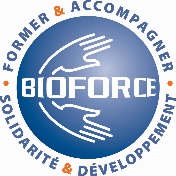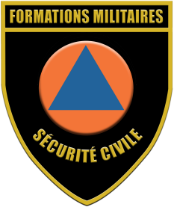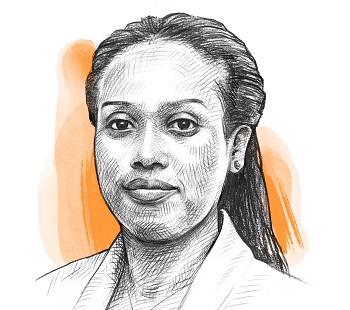PREPARE
Objective
-
€5.8mBUDGET
-
09/03/2015PROJECT START
-
26 monthsDURATION
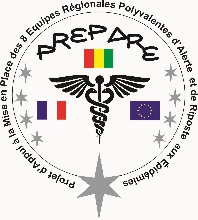 The PREPARE project is supporting the creation of an epidemic control mechanism in Guinea by training, equipping and assisting regional epidemic alert and response teams (ERARE).
The PREPARE project is supporting the creation of an epidemic control mechanism in Guinea by training, equipping and assisting regional epidemic alert and response teams (ERARE).
The project is part of the “Zero Ebola Cases in 60 Days” plan. It takes into account the lessons learned from the previous plans and the need to work to improve the resilience of the health system.
The closing ceremony for PREPARE, which was organised in late November 2017, marked the resumption of the ERARE mechanism by the Guinean authorities.
The ERARE are today the cornerstone of the national health surveillance and security system. The ERARE teams are set to extend the scope of their missions and already play an active role in the supervision of Prefectoral Directorates of Health (DPS), and in the future establishment of Prefectoral Epidemic Alert and Response Teams (EPARE).
Creation of teams and training
For nearly 3 years, PREPARE supported the training, equipment and mobilisation of 8 ERARE teams exclusively made up of Guinean health staff:
• Identification of ERARE members
• Preparation of an instruction manual for the ERARE
• Creation of a pool of Guinean trainers
• Training in surveillance, investigation, response and awareness-raising
• Training for health professionals.
The ERARE teams aim to respond to a health crisis in the short term and are also a permanent tool available to the Guinean authorities to combat epidemics.
These teams of 24 people (38 in Conakry) were prepositioned in the 8 regions of Guinea and now facilitate the surveillance, early detection and rapid treatment of infectious diseases with epidemic potential, before they reach the epidemic threshold.
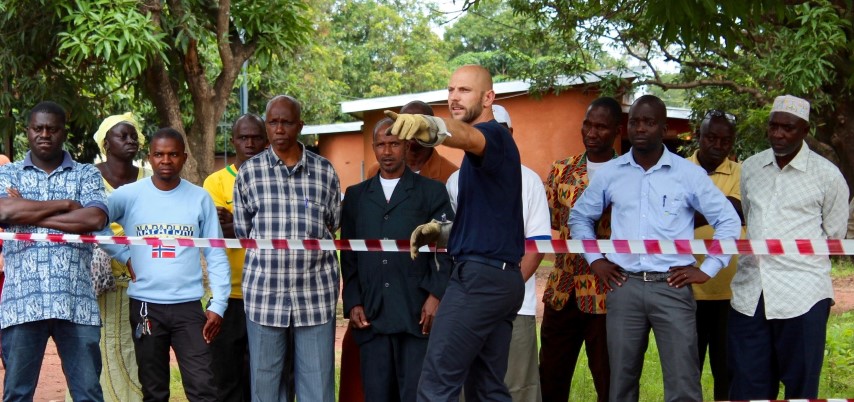
New response capacities
The project also involved giving the 8 regions in Guinea new response capacities:
• Rehabilitation
• Equipment
• Logistics training
• Training in crisis management
Ongoing support and follow-up
Following their deployment, the teams were supported and benefited from ongoing follow-up through:
• Formative supervision
• Joint supervision missions
• The preparation of activity follow-up reports
• The implementation of management tools
Since their deployment, these ERARE teams have conducted over 300 missions nationwide and have worked on epidemics of measles, meningitis, yellow fever, pertussis, hepatitis, polio and anthrax.
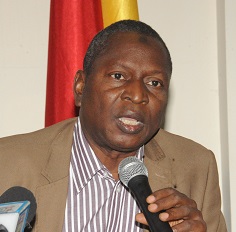 Dr. Sakoba Keïta, director general of the Guinean National Agency for Health Security
Dr. Sakoba Keïta, director general of the Guinean National Agency for Health Security
1. What were the main components of the PREPARE project?
The objective was to build our surveillance and warning capacities at all levels, from communities to national health teams, so that everyone can make an effective contribution to the response. We also wanted to set up procedures to ensure that the local, regional and national teams are really complementary.
2. How has Expertise France supported you?
Thanks to the mobilisation of experts in emergency protocols, we have developed a warning system that is tailored to the context in Guinea. We have systematised taking samples right from the first cases and developed a community investigation protocol to allow a rapid launch of the warning system in the event of a crisis.
3. What is your assessment of the project at this stage?
Two hundred regional officers have been trained in emergency protocols. They now know how to prevent, monitor, investigate and warn by communicating the essential information. The aim is to make these protocols sustainable in order to ensure a rapid response to epidemiological crises: Ebola, measles, meningitis...


